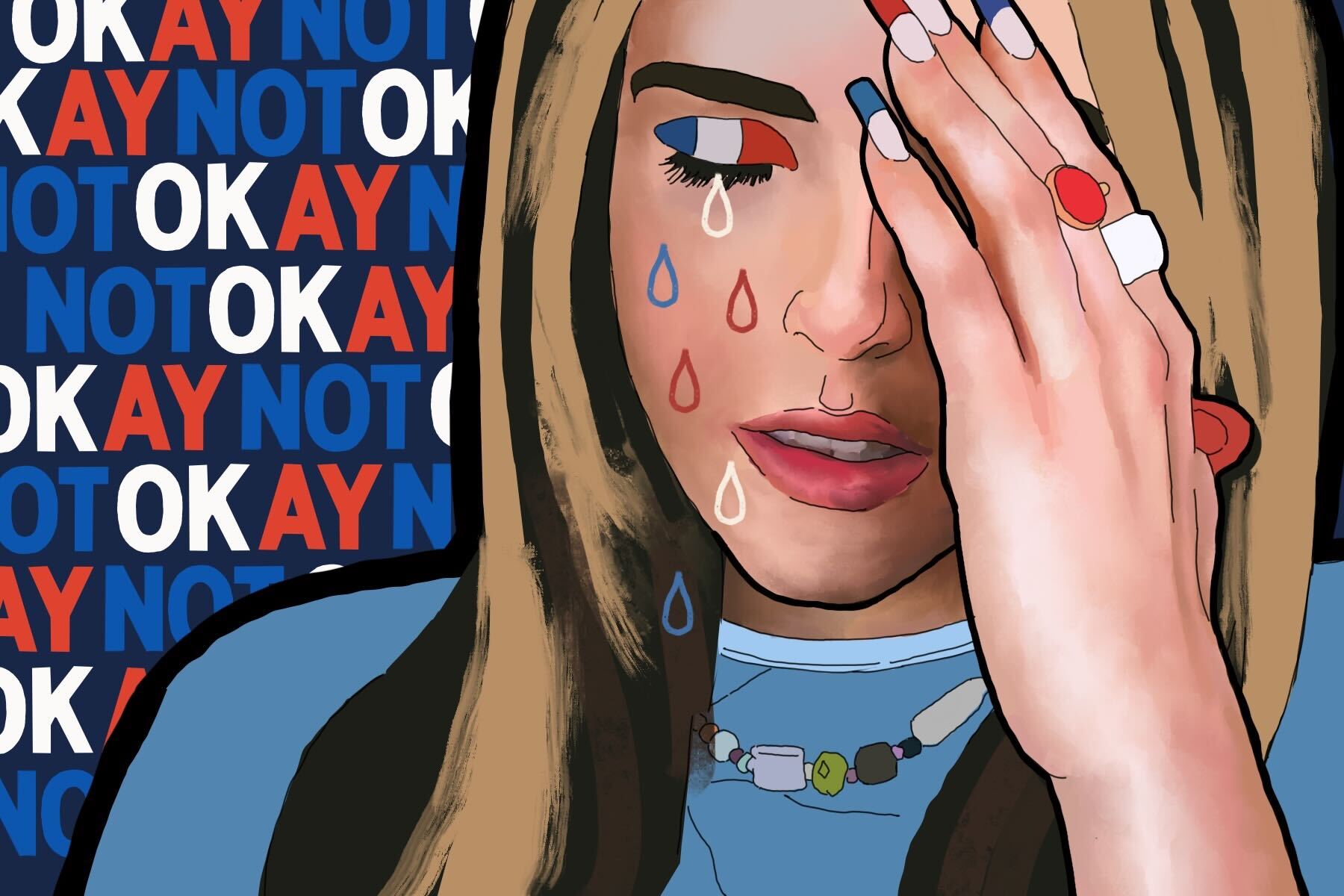Quinn Shephard’s film “Not Okay” opens with this trigger warning to viewers: “This film contains flashing lights, themes of trauma and an unlikeable female protagonist. Viewer discretion advised.” The last part of the warning is largely understated and ends up being a big part of the plot.
“Not Okay,” starring Zoey Deutch, Mia Isaac and Dylan O’Brien, tells a relevant story regarding one of the negative aspects of contemporary social media culture. Deutch’s character, Danni, craves online validation as a result of not receiving enough attention. The lengths one may go to for social validation, even to the point of being immoral, is Danni’s “unlikable” trait.
Danni faces a moral dilemma after posting fake, photoshopped Instagram photos. It just so happens that a bombing takes place in France in the exact location she took photos before. This presents a convenient opportunity for her. The film paints Danni’s life as lonely; she goes unnoticed and is considered boring — she thus snags the opportunity to play the victim because she wants the recognition from co-workers, family and Dylan O’Brien’s character, Colin. Her lie is taken entirely too far when she writes a piece at her work about the trauma she allegedly endured and begins to attend group therapy. She becomes more and more unlikable as the film progresses.
To make matters worse, she befriends Rowan (played by Mia Isaac), an actual victim of gun violence that is participating in group therapy and is famous for her activism. Rowan becomes someone who can boost Danni’s social media follower count, a number that goes up as her morality is increasingly nowhere to be found. It really just gets worse and worse as the movie goes on, with Danni making more terrible decisions and her lie quickly spiraling out of control. Her need for fame and recognition is really just “not okay.”
The scenes for “Not Okay” were first teased on TikTok by director Quinn Shephard in August 2021. During the entire filming process, cast members, production crew and Shephard herself took part in subliminal promotion of the movie. By using trending TikTok audios and slowly revealing the film’s characters, they were able to reel fans in.
The power of social media built excitement for the film, making it highly anticipated by viewers long before a trailer even dropped. Ironically, social media culture is precisely what garnered attention for the film itself.
Although this project was set to release on Aug. 5, the film’s TikTok account made a surprise announcement just last month. Fans were able to stream the movie on July 29, a bit earlier than originally expected.
The genius, consistent use of social media to promote the film did not go unnoticed by fans. In fact, a user on TikTok, @sethrogengivemeachance, had a comment of theirs pinned on one of the promotional videos posted to the movie’s account. It read: “best social media campaign i’ve seen for a film!!! i hope you get many more jobs, gonna see this solely bc u did such a great job promoting through these!!”
At least 8,000 others agreed with this statement, and many other users commented similar messages on other posts.
Since the film’s release, there has been a whirlwind of press, including cast interviews, a film-release party in New York and even more “Not Okay” content on TikTok.
Needless to say, Dylan O’Brien’s strong fanbase contributed to the film’s popularity. O’Brien fans who recognize him from other projects such as “Teen Wolf,” the “Maze Runner” series and most recently the short film “All Too Well” may already be interested in watching the film to see what character he plays in it.
Though Colin is entirely annoying and tone-deaf throughout the entire film, his character serves a purpose to the plot as one of the unbearable individuals who just wants social media fame and is obnoxious in real life. He also undergoes an attractive transformation from his usual brunette hair to a bleached, buzz-cut look. The unbearable aspect of his character really plays on the nature of the film and each character’s role within the drama. Every character is in some way acting from their own self-interest at the cost of others, whether that be for the purpose of building their social media following, boosting their career status or getting the attention of someone they like.
As the film unravels, Danni’s lie catches up with her and she is forced by a co-worker to reveal her disturbing truth. The fallout affects her new friend Rowan the most, as Rowan thought she shared similar traumas with Danni. Ultimately, Rowan is betrayed by this ugly lie and again, Danni is left with no one by her side.
From being ignored by her own mother, to being shunned at work and receiving endless hate via social media, Danni is worse off than she was at the film’s beginning. The pile of trash that is set down next to her in the first 10 minutes of the film is initially meant to prove how “lame” she is — however, that comes to symbolize so much more. The trash is a form of foreshadowing and a representation of Danni’s terrible nature because of the lie her character chooses to run with.
This film, though sometimes cringy, effectively draws on Gen-Z humor and a triggering plot that criticizes the terrible culture of social media that we live with today. Garbage individuals will post just to develop a social media following, which can be disconcerting and indicative of one’s true nature.
One of the best aspects of this film, which Shephard nails, is her choice to end the movie with no redemption arc for Danni’s character. After the truth is out, Danni tries to win back Rowan’s friendship. Sneaking into Rowan’s trauma-inspired slam poetry session, Danni realizes she will not be forgiven. The obscene lie she tells costs her social status, important relationships and, most importantly, her friendship with Rowan. In the end, Danni walks out and the screen fades to black in acceptance of what has happened.
The film “Not Okay” really focuses on the theme of toxic social media behavior, in which people will do outlandish and sometimes immoral things for fame. The fact that Danni does not earn redemption for her poor choices is satisfying to watch. The movie ends with the understanding that it is “not okay” to benefit from others’ trauma, and that lying about a bombing experience does, in fact, make you an “unlikable female protagonist.”

















